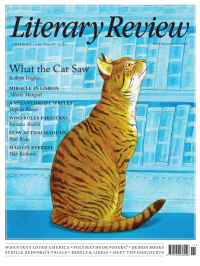Robert Mayhew
Three Cheers for Reason
The Enlightenment: The Pursuit of Happiness, 1680–1790
By Ritchie Robertson
Allen Lane 1,008pp £40
In many ways, we live enmeshed in Enlightenment values: societies can be asked to alter their behaviours on the basis of science to alleviate the spread of a virus, the consequences of which many will not have seen at first hand; complex protocols can be agreed to mitigate climate change, the science behind which has to be taken on trust by most. And yet such examples also show the limitations of reason: scientists themselves differ on what to do in response to the coronavirus, and beyond them lies a vast penumbra of misinformation masquerading as knowledge. The ability to decode such misinformation is beyond many citizens.
It is perhaps because we still live in the shadow of the Enlightenment that its ideas have in recent years given rise to a greater number of what we might call ‘doorstop books’ aimed at the general public than any intellectual movement in a comparable era has. Enter Ritchie Robertson, Taylor Professor of the German Language and Literature at the University of Oxford, with the boldly titled The Enlightenment. Robertson does not want to stake a claim for the immediate ‘relevance’ of the Enlightenment as a set of ideas prescribing how we should act today.

Sign Up to our newsletter
Receive free articles, highlights from the archive, news, details of prizes, and much more.@Lit_Review
Follow Literary Review on Twitter
Twitter Feed
How to ruin a film - a short guide by @TWHodgkinson:
Thomas W Hodgkinson - There Was No Sorcerer
Thomas W Hodgkinson: There Was No Sorcerer - Box Office Poison: Hollywood’s Story in a Century of Flops by Tim Robey
literaryreview.co.uk
How to ruin a film - a short guide by @TWHodgkinson:
Thomas W Hodgkinson - There Was No Sorcerer
Thomas W Hodgkinson: There Was No Sorcerer - Box Office Poison: Hollywood’s Story in a Century of Flops by Tim Robey
literaryreview.co.uk
Give the gift that lasts all year with a subscription to Literary Review. Save up to 35% on the cover price when you visit us at https://literaryreview.co.uk/subscribe and enter the code 'XMAS24'